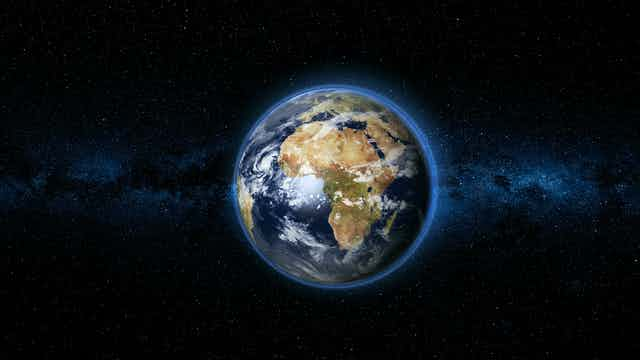
November 28, 2021; Lk 21:25-28,34-36; First Sunday of Advent
You and I join with Catholics throughout the world today as we lift our voices to the refrain of the responsorial psalm: “To you, Oh Lord, I lift my soul.” You could not find a better attitude for Advent, to lift our very selves to God, to affirm the relationship that we have with the one who saves us, to turn and speak to God in prayer. As we lift ourselves to God, there are many ways we can pray. We can say, “I am thankful.” We can request help with a particular need. We can confess, “I am sorry.” Or we can ask for the ability to see. We can ask God to remove a blindness from our eyes, to reveal something that we often overlook. I would like to suggest to you that today’s Gospel points to a specific area in which we need to see, in which our vision must be broadened.
When Jesus describes the coming of God’s kingdom, he points to signs in creation: changes in the sun, the moon and the stars, turbulence in the sea and the waves. Jesus points to these signs to seize our attention. Our Holy Father, Pope Francis, adopted a similar approach six years ago when he published his encyclical Laudato si. Francis pointed to changes in the world around us to arrest our attention. Because of changes in the ozone layer, the sun is more harmful today than in any other period of history. Because of pollution, the stars are less visible. Because of the increase in floods and hurricanes, the waters of the earth have done more damage in the last two decades than in any previous time. Pope Francis says that in the last two hundred years, we have done more damage to our common home (the earth) than in any other time in history. His encyclical stresses that care for the environment is a moral issue. Because of pollution and the way that we have exploited natural resources, we are harming the world in which we live.
Unfortunately, the issue of the environment has become a polarizing, political issue. There are even some who claim that the damage to the environment is simply a part of the normal historical cycle. But the Pope sides with an overwhelming consensus of international scientists who insist that the harm to our planet is largely the result of human activity. The way that we live, the way that we use natural resources is destroying our environment.
Now when I raise this issue, it is easy to throw up our hands in frustration and say, “What can I do to assure clean air and clean water? How can I as an individual somehow bend the curve of global warming?” What we can do is “see.” Every alcoholic will tell you that the road to recovery begins by first admitting that there is a problem. If we mean to move forward, we must admit the truth of where we stand today.
So on this first day of Advent, I would suggest to you that the gospel asks us to see, to recognize the present threat to our environment. Seeing is not the whole solution. There are still many discussions and decisions that need to be made on many levels, but the first step is to recognize the danger in which we stand. Today as we lift our souls to the Lord, let us ask Him to give us the vision to see the problem which our planet faces. Finding that vision is important, because the threat to our environment is arguably the greatest moral challenge of our generation.
